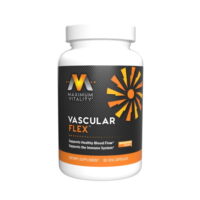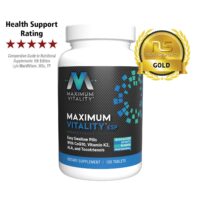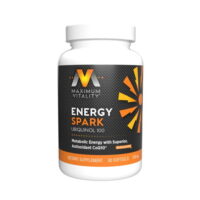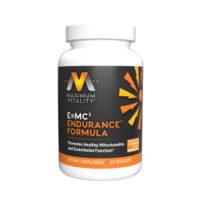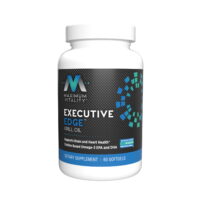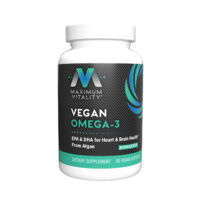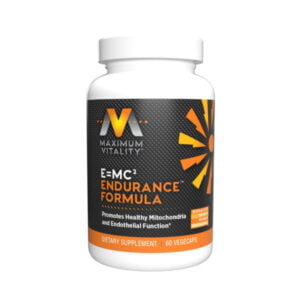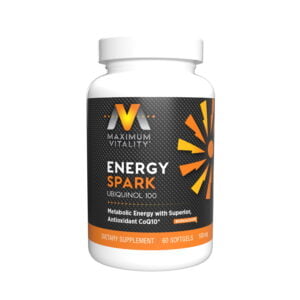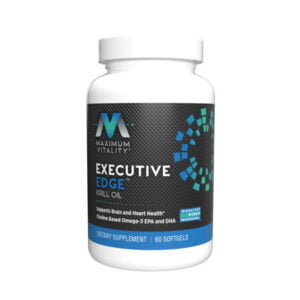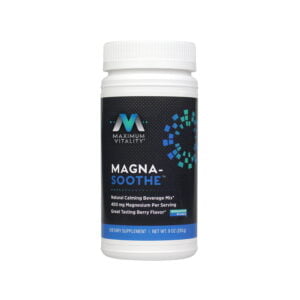Cardiovascular health drives exercise endurance and capacity, cognitive function, and healthy aging. Two critical components are heart health and vascular (artery and vein) health.
Calcium Metabolism
Long ago, like more than ten years ago, when your doctor was already out of medical school, and had long before taken his prerequisite biochemistry classes, arterial, venous, and organ calcification was thought to be an irreversible process and a result of aging. The build up of calcium in soft tissue, such as cardiovascular tissue – arteries, veins, the heart, kidneys, and other soft tissues makes the tissue less flexible and less able to handle the normal processes of daily life.
Calcium accumulation and depletion is an actively regulated biological process involving vitamin K2. You want calcium to accrue to your bones for bone strength and flexibility (not brittleness). You do not want calcium to accrue to soft tissue, where it impedes tissue flexibility. Vitamin K2 and its dependent Matrix Gla Protein (MGP), the most active inhibitor of soft tissue calcification, is also actively involved in recycling calcium in the body.1
Healthy arteries contain 100 times more Vitamin K-2 than unhealthy arterial tissue.2 Studies in large population groups show that significant arterial calcification in young people make them function as if they were older than their chronological age. Similarly, older people with little or no cardiovascular calcification act as if they were up to 10 years younger than the average person who is their actual age.4 More calcium in the arteries is a risk factor for cardiovascular and heart health.2

The often-referenced 2004 Rotterdam Heart Health Study showed that high dietary intake of Vitamin K2 – but not vitamin K1 – has a strong beneficial effect on cardiovascular health. Results of the Rotterdam study, which followed 4,800 initially healthy men and women over 55 years old, indicate that eating foods rich in natural Vitamin K2 (at least 32 mcg/day) results in 50% reduction of arterial calcification, 50% reduction of cardiovascular risk, and 25% reduction of all-cause mortality.5 Vitamin K2 is an anti-aging factor.
The Rotterdam findings were confirmed by a 2008 study with 16,000 women in the Prospect-EPIC study. Subjects free of cardiovascular disease at the start of the study and aged 50 to 70, were followed for eight years. Researchers discovered that for every 10 mcg Vitamin K2 (MK-7, MK-8, and MK-9) consumed (not K1) coronary heart disease risks were reduced by 9%. 6
Food sources of vitamin K-2 include the following. How often do you eat these foods?
- natto, a traditional Japanese cheese made from fermented soybeans
- liver and other organ meats from grass-fed cows, lamb, and organic chickens
- sauerkraut
- egg yolks
- duck and goose liver
- dark chicken meat
- dairy products, especially hard cheeses and butter from grass-fed cows

Even the most varied diet does not contain sufficient Vitamin K2. The Standard American Diet (SAD) obviously is lacking in this critical micronutrient. So supplementing with Vitamin K2 as MK-7 is recommended by doctors.
Why Combine Vitamin D-3 with Vitamin K-2?
Vitamin D plays an important role in helping to regulate calcium and bone metabolism. It can also increase the expression of osteocalcin and other important compounds from osteoblasts (bone cells) to help support bone formation. It can help to break down bone and release calcium to other areas of the body when it is needed. Vitamin K2 may also play important roles in supporting cardiovascular health and normal arterial elasticity. MK-7 in particular, one of several natural forms of vitamin K2, has shown to have rapid bioavailability and is well retained in the body.
The super combo of vitamins D3 and K2 ultimately promotes bone health, supports cardiovascular health, boosts immune function and supports blood circulation.
Vitamin D3’s natural partner is Vitamin K2. The genius of this combo begins with appreciation for D3’s function of enhancing calcium absorption.
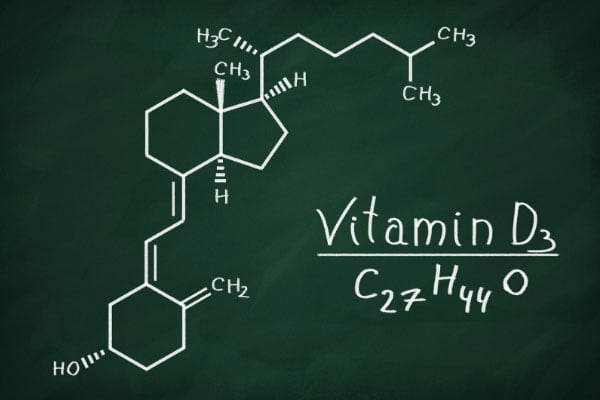
Recent research has shown that taking excessive amounts of calcium alone can be harmful to the body. Taking lots of calcium by itself is like asking a baker to bake a cake with flour alone. One ingredient does not make a cake, just like taking calcium without all its cofactors does not make healthier bones. Bones are a living entity which need magnesium, potassium, boron, vitamins D3 and K2, silica and other micronutrients for proper turnover, strength, flexibility and health.
Corticosteroids such as prednisone deplete vitamin D in the body. Therefore, one of the side effects of long-term prednisone or corticosteroid treatment is a reduction in bone density.
Note, if a nutritional supplement lists Vitamin K on the label, it likely represents the less expensive and less effective vitamin K-1 form which affects blood coagulation. If the supplement contains vitamin K-2, that more expensive and effective form is called out on the label as K2, often with the isomer (MK-4 or MK-7) specifically identified. If a brand is using the good stuff, they will be proud to list it on the label.
Mitochondria Support
The heart, like every other organ, relies on a constant, inexhaustible source of energy. Mitochondria are tiny organelles in every cell. They are the powerhouses of the cell, providing energy in the form of adenosine triphosphate (ATP). Scientists estimate there are 15 to 70 trillion cells in the human body. Each cell contains 1,000 to 2,500 mitochondria. So, the human body has an estimated 15 to 750 quadrillion mitochondria producing energy for every function in the body from the heart to the vascular system to cognitive function such as focus, concentration and memory. Read about energy production and mitochondrial support here.
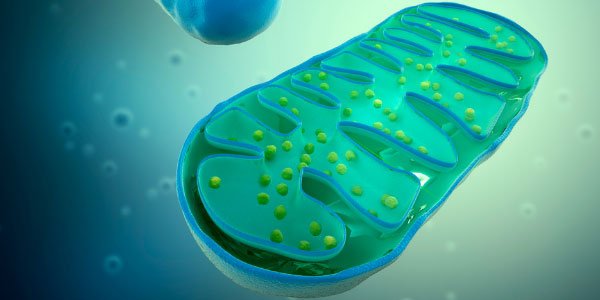
Omega-3 EPA and DHA
The protective and beneficial effects of omega-3 polyunsaturated fats (PUFAs) on cardiovascular health have been well established in over 10,000 published scientific studies. These benefits include reducing inflammation, managing healthy cholesterol, triglyceride, and glucose levels.
The omega-3 index provides a statistical measurement of cardiovascular health. The omega-3 index presents EPA and DHA as a percent of total fatty acids in red blood cells.8 The index indicates relative cardiovascular risk, where <4% is high risk, 4-8% is moderate risk, and >8% represents low risk, where low-risk patients have 1/10th the risk of sudden cardiac death versus high risk patients.

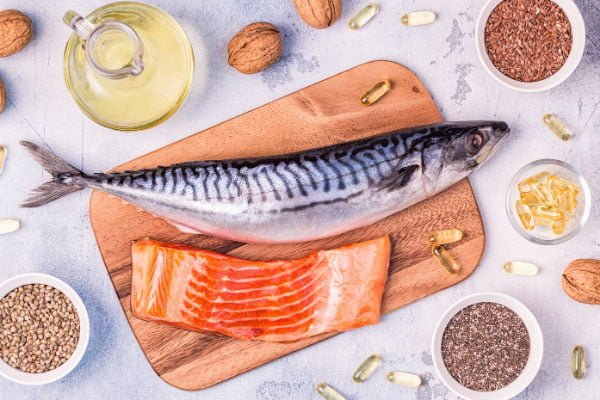
In a small study, patients with an average omega-3 index of 2.0 took 2 grams/day of Executive Edge™ Krill Oil for eight weeks. The average index increased 125% to 4.5. This study demonstrates that EPA and DHA from Executive Edge™ krill oil is absorbed through the gut to the blood stream and incorporated into cells, increasing heart health.
I have been taking 2 krill oil softgels daily for years, along with a healthy diet containing fish once or twice per week. My omega-3 index is 11%.
Other studies show that krill oil reduces ectopic fat around organs, especially the heart and liver. One comparison study showed that krill oil reduced ectopic liver fat 42% vs 2% reduction with fish oil and 60% for krill versus 38% for fish oil for ectopic heart fat. Ectopic fat is a sign of obesity and related metabolic dysfunction.9
Recommended Supplements for Cardiovascular Support
Support your heart, vascular system, and energy production in mitochondria in every cell in the body with a good diet, exercise and these targeted nutritional supplements.
Vascular Flex™: Any organ or activity which requires energy, such as the brain for cognitive function, the heart and muscles for outdoor and indoor sports, the liver, kidneys, lungs, etc., requires healthy blood flow. Support healthy blood flow, bone and immune health, with the full dose, advanced, researched components in Vascular Flex™, including 5,000 IU vitamin D3 and 180 mcg vitamin K2 as branded MK7 (as MenaQ7®) per capsule. Believe it or not, our vitamin K-2 (MK-7) is derived from the only vegetarian source of K2 – natto from fermented soybeans.
Maximum Vitality® multivitamin: contains 2,000 IU vitamin D3 and 180 mcg vitamin K2 as MK-7 and MK-4, as well as 65 other components, including CoenzymeQ10.
Energy Spark: contains 100 mg of Ubiquinol. Ubiquinol is the antioxidant, reduced form of CoenzymeQ10, which has shown to be up to 9 times more bioavailable than the standard ubiquinone form of CoQ10.
E=MC2 Energy Formula™: contains four components which support your mitochondria for energy production and support nitric oxide (NO) release in your vascular system. It is one of the most advanced energy endurance formulas available anywhere.
Executive Edge™ Krill Oil: provides natural choline-bound omega-3 EPA and DHA from a sustainable, low-on-the-food-chain, wild source of krill fished in the Antarctic under supervision of the World Wildlife Foundation. Some published studies have shown that one gram of krill oil provides up to 8 times the benefit of 3 grams of standard high quality fish oil.
Vegan Omega-3: for those of you who are following a vegetarian or vegan diet. This omega-3 is derived from algae and contains both EPA and DHA, versus standard vegan sources of omega-3 which contain the difficult to metabolize alpha linolenic acid.
References
- Schurgers, LJ. Cranenburg, ECM and Vermeer, C. Matrix Gla–protein: The calcification inhibitor in need of vitamin K. Theme issue article. Thromb Haemost 2008; 100: 593-603.
- Schurgers, LJ: Unpublished data
- Iribarren C, Sidney S, Sternfeld B, Browner WS. Calcification of the aortic arch: risk factors and association with coronary heart disease, stroke, and peripheral vascular disease. JAMA. 2000;283(21):2810-5.
- Shaw LJ, Raggi P, Berman DS, Callister TQ. Coronary artery calcium as a measure of biologic age. Atherosclerosis. 2006;188(1):112-9.
- Geleijnse JM, Vermeer C, Grobbee DE, Schurgers LJ, Knapen MH, van der Meer IM, Hofman A, Witteman JC. Dietary intake of menaquinone is associated with a reduced risk of coronary heart disease: the Rotterdam Study. J Nutr. 2004;134(11):3100-5.
- Gast G.C.M., et al. A high menaquinone reduces the incidence of coronary heart disease in women, Nutr Metab Cardiovasc Dis. 2009; 19:504-10.
- Knapen MHJ, Braam LAJL, Drummen NE, Bekers O, Hoeks APG, Vermeer C. Menaquinone-7 supplementation improves arterial stiffness in healthy postmenopausal women: double-blind randomised clinical trial. Thromb Haemost 2015 May: 19:113(5).
- Harris WS. The omega-3 index as a risk factor for coronary heart disease. Am J Clin Nutr. 2008; 87 (6):1997-2002.
- Batetta B, Griinari M, et.al. Endocannabinoids May Mediate the Ability of (n-3) Fatty Acids to Reduce Ectopic Fat and Inflammatory Mediators in Obese Zucker Rats. J Nutr, Vol 139, N 8, Aug 2009.


